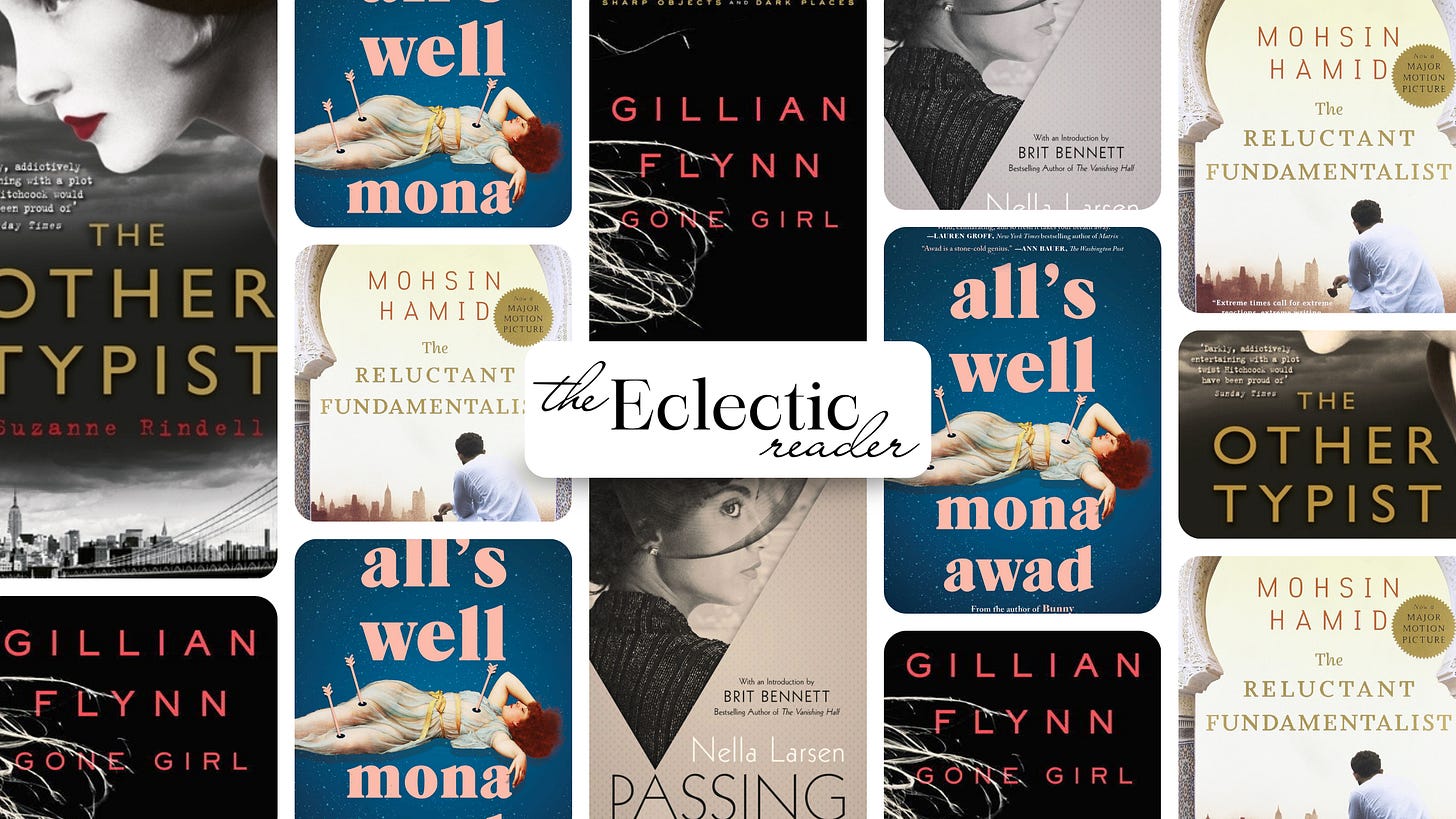5 books to read if you liked 'Audition' by Katie Kitamura
Books with tense meetings, plot twists, stage presence, structural genius, and WTF those endings for readers who enjoyed 'Audition' by Katie Kitamura.
Because in fact we don’t want to see the thing itself, on a screen or on a stage, we don’t want to see actual pain or suffering or death, but its representation. Our awareness of the performance is what allows us to enjoy the emotion, to creep close to it and breathe in its atmosphere, performance allows this dangerous proximity.
Audition by Katie Kitamura
I finished Audition by Katie Kitamura last week, which is huge cause for celebration. It’s the first literary fiction I could actually sink my teeth into since having Otto seven months ago, and it’s one of the few books I’ve read in physical format this year. Those seem like such small things, but to me they are big indicators of emerging from pure survival mode.
Audition made a perfect return to literary fiction because it’s short, it’s attention-grabbing from the first chapter, and it reads like a thriller. (And it’s set in the theater, which is one of my reading kinks.) I went in knowing only the most basic premise: an actress enters a restaurant to meet with a younger man, and over the course of the novel we see their relationship unfold. That’s it—that’s all I knew, and I think you’re better off going into this novel as blind as I did, so I’m leaving the synopsis there. Through this simple premise, Kitamura plays with structure, twists, interiority versus performance, and the theater of everyday life.
If you enjoy novels that make you go WHAT just happened? Or endings that make you question everything you just read, you should add Audition to your TBR right away.
While reading, I thought of five books whose authors deploy similarly stunning structural work, jaw-dropping plot twists, tense scenes, and head-scratching endings. Pick these up as you wait for your library hold.
5 books to read if you liked Audition by Katie Kitamura
All’s Well by Mona Awad. A college theater director who suffers from chronic pain desperately wants to redeem herself by producing All’s Well That Ends Well, the play in which she tasted stardom before an ill-fated accident left her with lifelong injuries. The students in her cast want to perform Macbeth and stand on the verge of mutiny. When she meets three powerful strangers who can remove her pain and make her theater dreams come true, Miranda will give them anything. Awad’s novel leans more humorous and quirky than Kitamura’s, but both aging main characters deal with performing womanhood and claiming space in a world that tries to make them disappear from view.
Gone Girl by Gillian Flynn. This literary thriller stands the test of time. Structurally, Audition gave me the same jolt as when I first read Gone Girl. But these books also connect thematically. Gone Girl is all about performance: the cool girl, the perfect wife, the victim—Amy plays every role available to her and presents social commentary through her diary, which reads a bit like the monologuing of Kitamura’s protagonist. Gone Girl may have spawned one thousand thrillers with “girl” in the title, but it deserves more respect as a literary turning point for all genres.
The Reluctant Fundamentalist by Mohsin Hamid. While reading the first chapter of Audition, I couldn’t get The Reluctant Fundamentalist out of my head. The set up feels eerily similar: mysterious strangers meet at a restaurant, where the reader picks up subtle clues about their relationship and background. Hamid’s narrator, a Pakistani man, tells the story of Changez, a Princeton graduate and model immigrant whose “American Dream” identity comes crashing around him after 9/11. Hamid’s short novel is taut, tense, and also explores performance, in the postcolonial realm.
Passing by Nella Larsen. How many times can I mention “performance” in each blurb? All of these selections unveil the performance of social, racial, and gender identity in such clever ways. Passing captures the tenuous nature of performing race while ratcheting up the tension between its main characters. The ending presents a perfect open-ended question for book club discussion. Audition’s ending, though less dramatic, presents a similar query: what did I just read?
The Other Typist by Suzanne Rindell. Rose Baker works as a typist for the NYPD, taking confessions for a living. She hears heinous details but puts herself back together as a respectable young woman on the outside until a new typist, Odalie, charms Rose with her flapper hair and alluring nightlife. Soon the two women’s lives are intertwined, and we learn about Odalie’s past in snippets and secrets. Ambiguous and tense, this slower-paced suspense will please readers who love tension, twists, and jaw-dropping endings.
Recommended reading post-Audition
A literary performance of true uncanniness (The Guardian)
In Audition, motherhood is a performance (Electric Literature)
Heightened performance in Katie Kitamura’s Audition (Chicago Review of Books)
Shared delusions (The New York Review)
Nine Booker Prize-nominated books with the best plot twists (The Booker Prizes)
Some of the links in this newsletter are Bookshop affiliate links. If you shop these links, I earn a small commission at no additional cost to you. Thank you for supporting my work in this way.






Love these recs as I loved Audition. Thank you!
I LOVE Mohsin Hamad and have yet to read The Reluctant Fundamentalist, although it's on my shelf. This might be the push I needed!